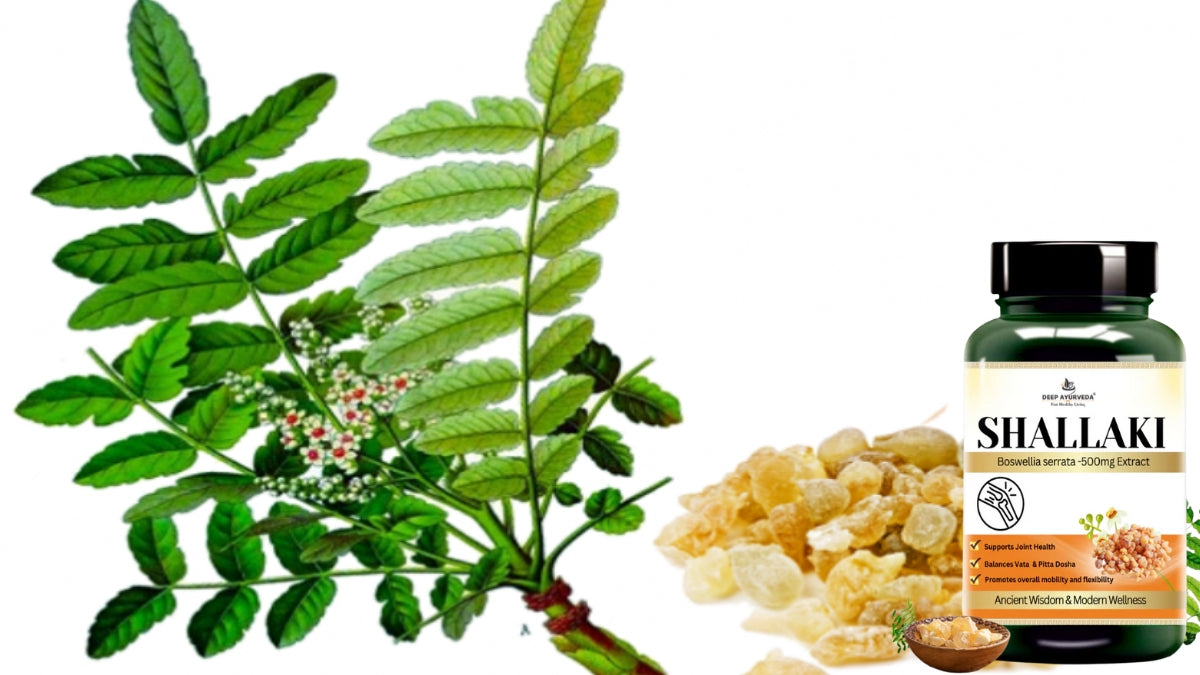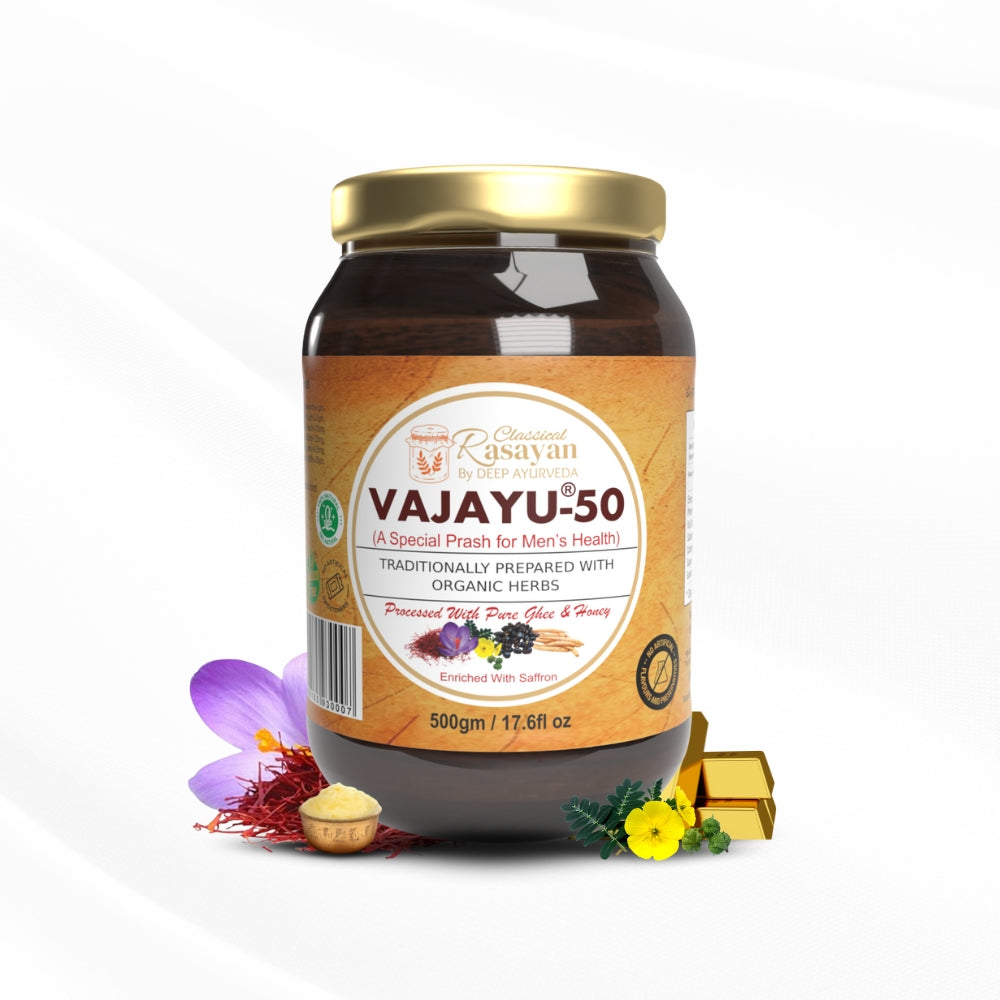In the realm of traditional medicine, few herbs have stood the test of time quite like Shallaki (also known as Boswellia serrata). Revered in Ayurvedic and Unani practices for centuries, Shallaki continues to captivate modern health enthusiasts for its remarkable benefits, particularly in the areas of joint health, inflammation, and digestive wellness. With the surge in natural remedies and holistic health trends, Shallaki’s role in the modern world has become more important than ever.
In this blog, we will delve into the scientific foundation of Shallaki, its historical significance, and why this herbal powerhouse might just be the solution you’ve been searching for to address chronic inflammation, joint discomfort, and overall well-being.
The Legacy of Shallaki: A Medicinal Marvel
Shallaki, scientifically known as Boswellia serrata, is a resinous tree found in the dry, rocky landscapes of India, Africa, and the Middle East. The medicinal benefits of Shallaki come from the resin that oozes from the bark, which is harvested and carefully processed for its potent healing properties. The resin contains boswellic acids, the primary active compounds responsible for Shallaki’s therapeutic effects.
For millennia, Shallaki has been central to the healing practices of Ayurveda, where it is lauded as a powerful anti-inflammatory, pain-relieving, and anti-arthritic agent. Known as "Indian Frankincense," the resin has also found its place in religious rituals, especially in Hinduism, where it is burned as incense in spiritual practices. The rich, fragrant aroma of the resin is not only a symbol of divine presence but is also believed to calm the mind and aid in meditation.
Shallaki’s Mechanism of Action: How It Works in the Body
Shallaki’s therapeutic prowess stems primarily from the boswellic acids it contains. These compounds, especially acetyl-11-keto-β-boswellic acid (AKBA), have been shown to possess potent anti-inflammatory and analgesic properties. The primary mechanism of action is the inhibition of 5-lipoxygenase (5-LOX), an enzyme responsible for producing leukotrienes, which are inflammatory molecules implicated in conditions like arthritis, asthma, and inflammatory bowel disease (IBD).
By blocking the 5-LOX enzyme, Shallaki prevents the production of these harmful inflammatory molecules, reducing swelling, pain, and the progression of inflammatory diseases. This makes Shallaki a valuable herb in the management of chronic pain and inflammation-related disorders, particularly those that affect the joints and gut.
Health Benefits of Shallaki: A Holistic Healer

1. Joint Health and Arthritis Relief
Shallaki’s most well-known benefit is its ability to support joint health and combat inflammatory conditions such as osteoarthritis and rheumatoid arthritis. Chronic joint pain often stems from inflammation in the joints, where the immune system mistakenly attacks healthy tissues. The result is pain, swelling, and stiffness, making even basic movements difficult.
Shallaki has proven itself to be a powerful ally in this battle. By reducing inflammation and promoting joint lubrication, Shallaki helps alleviate symptoms of arthritis and improves mobility. Research shows that Shallaki is comparable to conventional nonsteroidal anti-inflammatory drugs (NSAIDs) in its ability to reduce pain and swelling, but without the side effects like gastric irritation or long-term kidney damage commonly associated with NSAID use.
In clinical trials, patients who supplemented with Shallaki showed marked improvements in pain levels, joint function, and overall quality of life. The herb has even been found to prevent the breakdown of cartilage, making it a protective herb for those at risk of developing degenerative joint diseases like osteoarthritis.
2. Digestive Health and Gut Inflammation
Beyond its ability to support joint health, Shallaki has been shown to be beneficial for digestive health, particularly for those suffering from conditions like irritable bowel syndrome (IBS), ulcerative colitis, and Crohn’s disease. These conditions are characterized by chronic inflammation in the gut, leading to discomfort, bloating, cramping, and diarrhea.
Shallaki’s anti-inflammatory properties extend to the gastrointestinal tract, where it helps reduce inflammation in the intestines and soothe the digestive system. The herb is also believed to have antispasmodic properties, which help relieve muscle spasms and discomfort in the gut. For those with chronic inflammatory bowel conditions, Shallaki offers a more natural and holistic alternative to pharmaceutical drugs, providing symptom relief without the side effects.
3. Respiratory Health
Shallaki’s use isn’t confined to joints and digestive issues; the herb also plays a significant role in improving respiratory health. Boswellic acids found in Shallaki have been shown to have bronchodilator properties, meaning they can help open the airways in the lungs, making it easier to breathe. This makes Shallaki a valuable herb for those with asthma, chronic obstructive pulmonary disease (COPD), and bronchitis.
Moreover, the herb’s anti-inflammatory and antibacterial effects help combat infections and reduce inflammation in the airways, easing symptoms like wheezing, shortness of breath, and chest tightness.
4. Skin Health
In addition to its internal benefits, Shallaki also works wonders for the skin. Its anti-inflammatory and antioxidant properties make it an effective treatment for a variety of skin conditions, including eczema, psoriasis, and acne. Shallaki helps reduce redness, irritation, and swelling, promoting a calm and clear complexion.
By reducing the inflammatory response in the skin, Shallaki supports healthier skin, reduces flare-ups, and helps speed up the healing process for conditions like rosacea and dermatitis.
5. Cognitive Function and Mental Clarity
Recent studies suggest that Shallaki may have potential benefits for brain health as well. Chronic inflammation in the brain has been linked to cognitive decline and conditions like Alzheimer’s disease and Parkinson’s disease. Shallaki’s neuroprotective effects can help reduce brain inflammation, supporting cognitive function, memory retention, and overall mental clarity.
In Ayurvedic medicine, Shallaki is also used to improve mental focus and clarity, making it a valuable herb for those seeking to boost cognitive function and mental performance.
Shallaki in Modern Science: Evidence-Based Insights
Modern science has begun to back up the traditional claims of Shallaki, with numerous studies validating its anti-inflammatory, analgesic, and immune-modulating effects. The active compounds in Shallaki—particularly boswellic acids—have been the subject of extensive research, with several studies demonstrating their effectiveness in treating inflammatory conditions like arthritis, IBS, and asthma.
-
A study published in the Journal of Ethnopharmacology showed that Boswellia serrata extract was effective in reducing pain and improving physical function in patients with osteoarthritis.
-
Research in the International Journal of Colorectal Disease has demonstrated that Boswellia can significantly reduce inflammation and improve symptoms in patients with ulcerative colitis.
-
Clinical trials have also indicated that Shallaki’s effects are comparable to conventional NSAIDs, but with fewer side effects, making it a safer long-term solution for managing chronic pain and inflammation.
How to Use Shallaki: Dosage and Forms

Shallaki is available in a variety of forms to suit different needs and preferences. Some of the most common forms include:
-
Capsules/Tablets: These are the most convenient and standardized way to take Shallaki. They provide a precise dosage of boswellic acids, ensuring consistent benefits.
-
Powder (Churna): Shallaki powder is a more traditional form, commonly mixed with warm water, ghee, or honey. It can be taken on an empty stomach for maximum absorption.
-
Topical Creams/Balms: For localized pain or skin conditions, Shallaki-infused creams or balms can be applied directly to the affected areas.
-
Raw Resin: The original form of Shallaki, the resin can be chewed or used in various formulations, though it is less commonly used today due to its intense flavor.
The recommended dosage of Shallaki typically ranges from 300 to 500 mg of extract, taken one to two times per day, depending on individual needs and the severity of the condition being treated. Always consult with a healthcare provider before beginning supplementation, especially if you are pregnant, breastfeeding, or on medication.
Shallaki: A Timeless Remedy for Modern Times
In a world where chronic inflammation, joint pain, and digestive disorders are on the rise, Shallaki stands as a natural remedy with centuries of tradition backing its use. Whether you're seeking relief from arthritis, improving gut health, or supporting skin and brain function, Shallaki offers a holistic approach to wellness. With scientific research and Ayurvedic wisdom combining, this ancient herb is becoming a key player in modern health practices.
So, if you’re looking to reduce pain, combat inflammation, or support your overall health, Shallaki might be the perfect herbal ally in your wellness journey.





